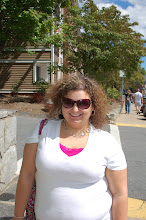I'm slowly but surely making my way into the twitterverse. One of the things I love is the #engchat on twitter on Mondays. I don't usually participate, I prefer to "lurk" and find things that interest me. Sometimes the conversation isn't all that interesting to me, but tonight's topic caught my interest.
digital storytelling
I have toyed with digital storytelling for so long, and tossed the idea around in my lesson plans but every time I think I'm ready, I lose my confidence and don't go there. Last semester, I used animoto to get my students to create short films that condensed their gothic stories down to 30 second clips. It seemed to go well, but animoto limited their creativity too much. I applied for an educator's license through the website, but I haven't heard anything yet.
So the Gothic Lit. unit is starting up again this semester and I want to do a better job with this idea of digital storytelling. So I was excited to see the topic on #engchat tonight.
So here's what I'm toying with now, and there are articles to back it up!
1. Blogging as a writing tool. Miracle of miracles! They're better writers when they practice it by...writing!
2. The guy who facilitated #engchat tonight was Joel Malley (follow him @joelmalley). Here's a video he offered for writing in the digital age.
Writing in the Digital Age from Joel Malley on Vimeo.
3. I'm going to try out lightworks as a potential film editing platform for student made films shot with our school's flip cameras. It's an alternative to iMovie since our mobile laptop carts are PCs. I'm going to learn about it the same way my students will: play!
4. I'm loving this blog as a good way to read about all things tech AND journalism. Since the yearbook is done (woohoo!) I have time to read and think about next year :D I wonder how much begging I could do for the sake of getting a yearbook class both semesters?
5. Something else that came up in the #engchat tonight: the multi-million dollar grading industry. I think it's a good read for anyone concerned about the impact of standardized testing (which should be all of us!).
Digital composition is incredibly relevant right now; students are going to be challenged at the next level to think creatively and express themselves in multimedia form. We won't go backward (I hope!) and lose the sense of immediacy and relevance of the digital landscape. I just want my students to think for themselves! I want them to experience as many different composition platforms as possible, to be well-versed in the digital environment before they go on to colleges and universities that expect them to immediately participate in the online environment. So here's to learning something new in the world of digital composition!


